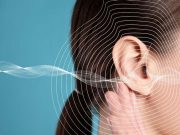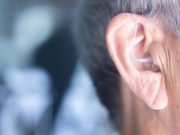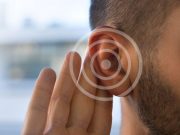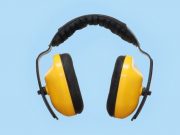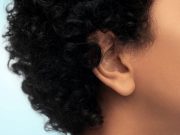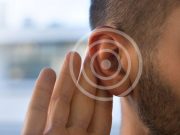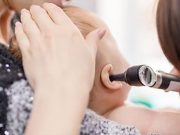Tag: Hearing Loss
Endolymphatic Hydrops Grade M2 Correlates Most Strongly With Hearing Loss
Grading consistency of M2, M3, M4 for endolymphatic hydrops is relatively higher than that of M1
Self-Fitting, Over-the-Counter Hearing Aids Beneficial
Self-reported and clinical outcomes similar to those seen with audiologist-fitted hearing aids
Use of Hearing Aids Reduces Dementia Risk in Those With Hearing Loss
Risk for all-cause dementia increased for those with hearing loss without hearing aids, but not for those with hearing aid use
Most Patients With Acute Low-Tone Hearing Loss Have Recovery
Reports of recurrence relatively common, but progression to Meniere disease rare
More Than Half of Adults Agree With Protective Actions to Prevent Hearing Loss
More than half of respondents agreed that sound levels should be limited, warning signs posted, hearing protection used
Vestibular Evaluation Can Help Predict Outcomes in Sensorineural Hearing Loss
Recovery of hearing mostly affected by cervical-vestibular evoked myogenic potentials impairment and number of involved receptors
Sequencing IDs Genetic Diagnoses for Sensorineural Hearing Loss
Causal variants identified in 43 genes; almost all children had causative variant(s) in only one gene
Hearing Loss Linked to Increased Risk for Dementia
Authors say findings support public health action to improve hearing aid access
Factors ID’d for Hearing Loss in Newborns With Congenital Cytomegalovirus
Risk for congenital hearing loss increased for those with petechiae at birth, periventricular cysts on MRI, seroconversion in first trimester
High Prevalence of Youth Estimated at Greater Risk for Hearing Loss
Number of young persons who may be at risk due to unsafe listening practices ranges from 0.67 to 1.35 billion


